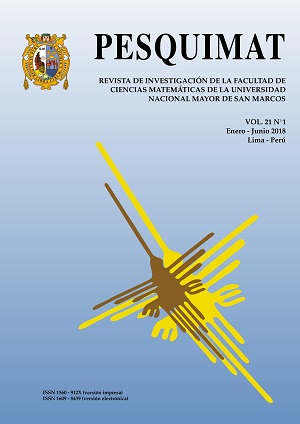Comparison of Expectimax and Monte Carlo algorithms in Solving the online 2048 game
DOI:
https://doi.org/10.15381/pes.v21i1.15069Keywords:
2048 game, Expectimax algorithm, Monte Carlo algorithm, heuristicsAbstract
In this work, two search algorithms Expectimax and Monte Carlo Tree Search (MCTS) were developed to solve the well-known “2048" puzzle online-game and compare their results. In both cases, five heuristics were employed to obtain favorable tile positions within the game. These heuristics were combined to maximize the game-score in all possible board positions. As a result, the game-score, the maximum value of tile obtained, and the computing time employed in solving the game are shown. In addition, the efficiency of each algorithm and its sub-cases are presented. This research concludes by arguing that Monte Carlo Tree Search was more efficient in higher score than Expectimax algorithm, although in a longer time. Increments in level of depth-search in Expectimax and number of moves in MCTS do not necessarily resulted in obtaining higher score.Downloads
Published
Issue
Section
License
Copyright (c) 2018 Efrain Noa Yarasca, khoi Nguyen

This work is licensed under a Creative Commons Attribution-NonCommercial-ShareAlike 4.0 International License.
THE AUTHORS RETAIN THEIR RIGHTS:
a) The authors retain their trademark and patent rights, and also on any process or procedure described in the article.
b) The authors retain the right to share, copy, distribute, execute and publicly communicate the article published in Pesquimat magazine (for example, place it in an institutional repository or publish it in a book), with recognition of its initial publication in the Pesquimat magazine.
c) The authors retain the right to make a later publication of their work, to use the article or any part of it (for example: a compilation of their works, notes for conferences, thesis, or for a book), provided that they indicate the source of publication (authors of the work, magazine, volume, number and date).






